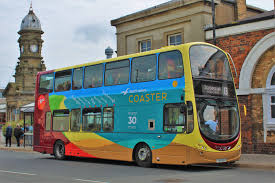‘Neglecting England’s buses has had serious environmental, social and economic consequences’
Cuts to bus services have hit England’s most deprived areas ten times harder than the least deprived areas, according to new research by the Institute for Public Policy Research (IPPR).
According to analysis by IPPR North, the number of bus miles travelled per person in the most deprived areas fell by 9.8 miles, while in the most deprived areas, it decreased by 0.9 miles.
From 2011 to 2023, bus provision, defined as miles driven by buses per person each year fell 28% from 25 to 18 miles.
IPPR North’s research has revealed that the number of bus trips fell from 4.6 billion in 2011 to 3.4 billion in 2023.
Cuts to bus services have also had an environmental impact. Over the last 15 years, they have led to an estimated 750 million extra miles driven in cars in 2023.
Helen Morgan, Liberal Democrat MP for North Shropshire, has brought a new Private Members’ Bill, the Bus Services Bill, to Parliament.
The bill aims to ensure that every town with a population of more than 10,000 people has a regular bus service operating seven days a week.
Senior research fellow at IPPR North, Marcus Johns commented: “Neglecting England’s buses has had serious environmental, social and economic consequences, which have not been felt equally.”
He added: “After years of decline, it’s time to turn buses around so that they can help grow our economy, connect people to opportunities, and reduce our emissions.
“The Bus Services Bill is a crucial chance to achieve this change. By devolving powers, supporting local leaders, investing in buses, and decarbonising the bus fleet faster, it should help rebuild local bus networks.
Silviya Barrett from the Campaign for Better Transport said: “Bus cuts are harmful wherever they happen, but these disproportionate cuts to deprived areas are deeply concerning, not least because our own research into ‘left-behind neighbourhoods’ shows how poor transport connectivity exacerbates deprivation.”
Barrett highlighted that “Buses are vital to people up and down the country, but especially to those on low incomes, for getting to work and college, shops and services, and for combating loneliness.”
She said that the Buses Bill is “a real opportunity” to improve buses, stating that franchising, which gives local authorities control over routes, schedules and fares will improve services in some areas.
She added that areas where franchising isn’t suitable will need funding and support to better connect communities.
Olivia Barber is a reporter at Left Foot Forward
To reach hundreds of thousands of new readers we need to grow our donor base substantially.
That’s why in 2024, we are seeking to generate 150 additional regular donors to support Left Foot Forward’s work.
We still need another 117 people to donate to hit the target. You can help. Donate today.



